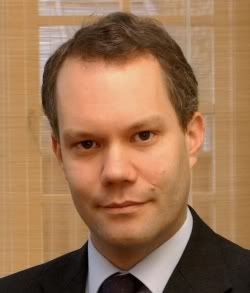
BREAKING NEWS: I published this post yesterday on the misuse of rules intended to combat terrorism: this morning, the Government has demanded that social Networking site Facebook hand over records of British citizens accessing it - click here to read why Gordon Brown's no friend of Cambridge Conservative Parliamentary Candidate Richard Normington. I get the Adam Smith Institute e-bulletin, and was interested in the quote at the bottom of this week's:
How true, I thought: especially in Great Britain, where, among all the other intrusions into our privacy, we have four million CCTV cameras - one for ever four people on the island.We are rapidly entering the age of no privacy, where everyone is open to surveillance at all times; where there are no secrets from government.
William O Douglas (1898-1980), America's longest-serving Supreme Court Justice
Glasgow is Scotland's largest city, and had 400 of the damn things in 2006. I remember, when I lived there, a cons
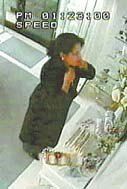 ultation process concerning where to place them in one particular area, not too salubrious, where the councillors were extensively lobbied by individuals who turned out to be working for drug-dealers keen to protect the places where they did business. But that's nothing compared to the 40,000 cameras estimated to have been in place in London the next year.
ultation process concerning where to place them in one particular area, not too salubrious, where the councillors were extensively lobbied by individuals who turned out to be working for drug-dealers keen to protect the places where they did business. But that's nothing compared to the 40,000 cameras estimated to have been in place in London the next year.You might say that the need for maintaining law and order over-rides our right not to have our images examined by overt and covert cameras, and that would be a fair point: but i
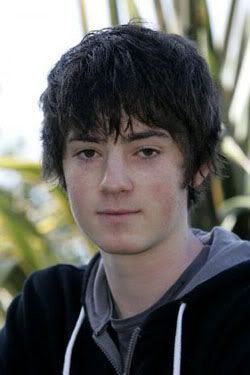 t doesn't work in practice. There was an outcry when jewellers in London's Kensington district were prevented from distributing the image of a conwoman who had stolen thousands of pounds worth of goods taken on CCTV, on the grounds that it would contravene her human rights. When 16-year-old Oliver Wheen jumped through hoops to get access to CCTV footage that would identify the thief who had stolen his iPod from a school changing room, going so far as to make a freedom-of-information (FOI) request to Brighton and Hove Local Authority to see the footage, he was frustrated at every stage - because his viewing the pictures "would infringe the rights of the thief."
t doesn't work in practice. There was an outcry when jewellers in London's Kensington district were prevented from distributing the image of a conwoman who had stolen thousands of pounds worth of goods taken on CCTV, on the grounds that it would contravene her human rights. When 16-year-old Oliver Wheen jumped through hoops to get access to CCTV footage that would identify the thief who had stolen his iPod from a school changing room, going so far as to make a freedom-of-information (FOI) request to Brighton and Hove Local Authority to see the footage, he was frustrated at every stage - because his viewing the pictures "would infringe the rights of the thief."As annoying as this is (an iPod costs more than anything I possessed as a teenager), Manchester band The Get Out Clause demonstrated a cool take on surveillance when they performed their single Paper in front of CCTV cameras in the city and requested the footage under FOI rules - successfully, surprisingly, although guitarist Tony Churnside noted that some firms merely procrastinated until they could legally destroy the images.
But all this becomes small meat compared to the human wrongs perpetrated by authorities and lawyers around CCTV images. For example, the Telegraph's Martin Beckford reports that a social work department placed a camera in the bedroom of a couple with learning difficulties to monitor how well they looked after their child - who slept in a different room. Unusually, the department found itself on the wrong side of the Human Rights Act, not having observed Government guidelines on maintaining the couple's privacy.
I say unusually, because privacy is an ever-rarer commodity. Beckford continues:
Recent figures show three-quarters of local authorities have used powers granted under the [anti-terrorist] Regulation of Investigatory Powers Act to spy on residents suspected of putting their bins out on the wrong day, allowing pet dogs to foul the pavement or breaking school catchment area rules.Here's another one for the list: last December, Raymond Brown reported in the Cambridge News that Cambridgeshire County Council had used surveillance techniques intended to investigate terrorism against Rashmi and Dips Solanki, who were suspected of employing paper-boys without permits in Melbourn, a village south of Cambridge.
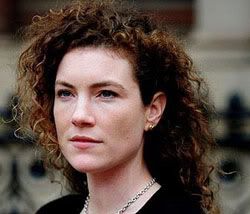 So you would think that a little bit of private enterprise in the field of CCTV would not go amiss. But no: news broke today that Alex Dolan, a science teacher who captured shocking footage of misbehaviour by school authorites while filming undercover for a Channel 4 Dispatches documentary in 2005, has been banned from the classroom for a year. Despite the fact that she found abuses like the worst-behaved kids being sent away on a trip on the day of a scheduled OFSTED school inspection, the General Teaching Council did not accept that what she had found justified undercover filming of pupils (who could be captured on the street by a Google Streetview car), and it possibly revealed more than it intended to when it said that there were no "exceptional circumstances".
So you would think that a little bit of private enterprise in the field of CCTV would not go amiss. But no: news broke today that Alex Dolan, a science teacher who captured shocking footage of misbehaviour by school authorites while filming undercover for a Channel 4 Dispatches documentary in 2005, has been banned from the classroom for a year. Despite the fact that she found abuses like the worst-behaved kids being sent away on a trip on the day of a scheduled OFSTED school inspection, the General Teaching Council did not accept that what she had found justified undercover filming of pupils (who could be captured on the street by a Google Streetview car), and it possibly revealed more than it intended to when it said that there were no "exceptional circumstances".So what does the future hold for a society in which we have no control over our image except if we can get human rights lawyers excited; where we can appear on Google but we can't access images of people who have stolen our property; where, in Great Britain, we have one-fifth of the world's CCTV cameras, but they only solve 3% of crimes? The only answer I can think of is that if the rights of the state continue increasing at the rate its responsibilities to its subjects wither, the future holds a widening sense of revulsion leading to the current disaffection reaching tipping-point, which I hope can be contained by the ballot-box.
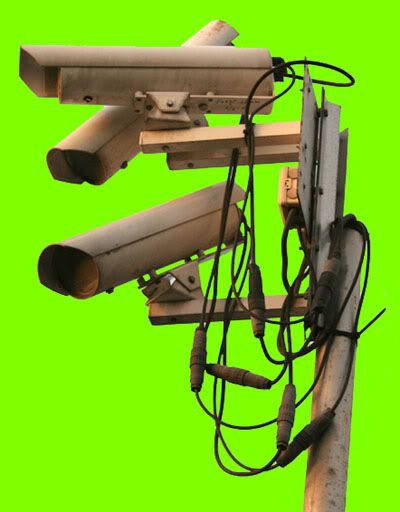











What was it? George Orwell's 1984?
ReplyDeleteThose who complain about red light cameras, tollway cameras and satellite observance are called "paranoid". Probably nothing amiss is being done - yet. But the direction is not a safe one, for human rights. How else could "1984" really happen, except slowly, in increments so small as not to cause alarm to the general public.
I agree totally! And I would add that human rights legislation is the worst thing ever to happen to the rights of ordinary, law-abiding folk.
ReplyDeleteYes, because now it seems to be assumed you don't have any rights unless they're already specifically spelled out in a law - and your lawyer can find it!
ReplyDeleteToo right! Case in point - this fellow Binyam Mohammed, who's bringing a case against the MI5 after having been arrested for travelling on a forged British passport through Afghanistan and Pakistan and taken to Guantànamo: if I had my way he'd still be there, being encouraged to tell how he planned to attack the rights of free people. With the absolute minimum of force necessary, of course, but the emphasis being on necessary, not minimum.
ReplyDeleteHi Pam, if you're reading this, could you tell our good friend I'm writing a blog relating to nutritional issues? I don't want her to get a fright. If this message embarrasses her, i can delete it.
ReplyDeleteLinda read your blog and said there are no problems in it for her. She said it takes 9 months to gain the weight, so she gives herself 9 months to lose it.
ReplyDeleteThat's what my wife said - word for word!
ReplyDeleteI like your blog
ReplyDeleteSource: Best seo agency in Patna
I read your post and I like it.
ReplyDeleteSource: Top 10 Restaurants in Patna
Interior designer in Patna
ReplyDelete